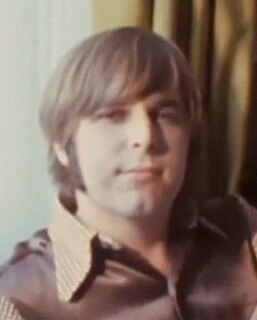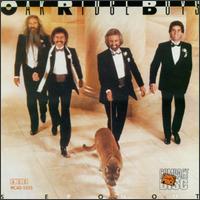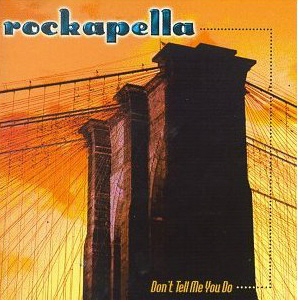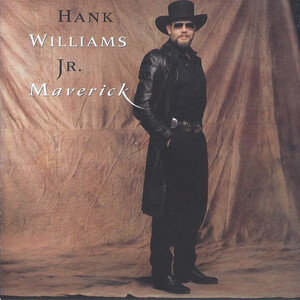
Carl Dean Wilson was an American musician, singer, and songwriter who co-founded the Beach Boys. He is best remembered as their lead guitarist, as the youngest brother of bandmates Brian and Dennis Wilson, and as the group's de facto leader in the early 1970s. He was also the band's musical director on stage from 1965 until his death.

Headquarters is the third album issued by the Monkees and the first with substantial songwriting and instrumental performances by members of the group itself, rather than by session musicians and professional songwriters. After a struggle for creative autonomy with their record label, the group had been allowed to record by themselves. Headquarters reached No. 1 on the Billboard 200 chart and was certified double platinum in the United States with sales of more than two million copies within the first two months of release. It peaked at #2 on the UK charts. It is included in the 2006 book 1001 Albums You Must Hear Before You Die.

Changes is the ninth studio album by the Monkees. The album was issued after Michael Nesmith's exit from the band, leaving only Micky Dolenz and Davy Jones to fulfill the recording contract they signed in the mid-1960s. Changes was their last new album for Colgems Records and the group's last album of all new material until 1987's Pool It.

If I Should Love Again is the eighth studio album released by singer and songwriter Barry Manilow. The album was recorded at United Western Recording Studios in Los Angeles, California. Barry refers to it as "The most romantic album that I ever made", and remarks "I was so caught up in romance that I actually wrote music and lyrics to the title song while playing the piano facing the ocean, in a rented house on the beach in Atlantic City, New Jersey." The album was released in 1981, and it scored single platinum, as the previous album had.

The Bee Gees Sing and Play 14 Barry Gibb Songs is the debut studio album by the English pop band the Bee Gees. It was released in November 1965 on the Australian Leedon label under the name "Barry Gibb & the Bee Gee's" [sic]. It is a compilation of most of the Gibb brothers' singles that had been released over the previous three years in Australia, which accounts for the many different styles of music on it.

Life in a Tin Can is the Bee Gees' eleventh studio album, released in January 1973. The Bee Gees moved their base of operations from England to Los Angeles to record Life in a Tin Can. However, it was unable to prevent a commercial decline with the album criticised for a lack of innovation. Despite its low sales and poor chart performance, Life in a Tin Can was awarded "Album of the Year" by Record World magazine. It was the first Bee Gees album to bear the RSO label in the US.

Little Sparrow is the 39th studio album by Dolly Parton, the second in Parton's trilogy of folk/bluegrass albums released between 1999 and 2002.
"Low Rider" is a song written by American funk band War and producer Jerry Goldstein, which appeared on their album Why Can't We Be Friends?, released in 1975. It reached number one on the Billboard R&B singles chart and peaked at number seven on the Hot 100 singles chart.

The Johnny Cash Children's Album is the 49th album by country singer Johnny Cash, released on Columbia Records in 1975 featuring recordings made between January 1972 and October 1973. As the title implies, it contains songs written for children. Among others, this includes "Tiger Whitehead", a song later released in an acoustic version on Cash's posthumous Personal File album in 2006. Most of the songs on the album had not been performed by Cash before. "Old Shep" had been performed by Elvis Presley, among others. One track recorded in 1972 was previously released on LP: "I Got a Boy " was first made available on the 1972 album International Superstar. It is a tongue-in-cheek duet between Cash and his wife, June Carter Cash, about their son, John Carter Cash.

Step On Out is the 10th country studio album from American country music quartet The Oak Ridge Boys, released in 1985. It contains the #1 singles "Touch a Hand " and "Little Things", as well as the #3 single "Come On In ". The title song was co-written by Rock & Roll Hall of Fame member and former Byrds bass player Chris Hillman and former Crawdaddy magazine editor Peter Knobler. "Staying Afloat" would be covered two years later by Sawyer Brown on their self-titled debut album.

Don't Tell Me You Do is the ninth overall and fourth North American studio album by the a cappella group Rockapella. It is the first album released by the group on a North American record label. All but two of the tracks were recorded during the fall of 1997 and originally released on the independent album Rockapella. When Rockapella obtained their long-awaited North American record deal in 1998, the songs "Moments of You" and "Hold Out For Christmas" were added in the place of "Bed of Nails" and Don't Tell Me You Do was released in the spring of 1999. In 2004, when the album was re-released on Shakariki Records, the then rare 1997 studio recording of the song "Bed of Nails" from the original album, Rockapella, returned to the track list in the place of "Hold Out For Christmas", which can be found on the group's holiday album Christmas.

Alone Together is the debut solo album by former Traffic member Dave Mason, released in 1970. Mason was joined on the album by a roster of guest musicians, including Bonnie Bramlett, Leon Russell, Jim Capaldi, Rita Coolidge, Carl Radle and Jim Gordon. The song "Only You Know and I Know" reached number #42 on the Billboard charts in the US and was the record's major commercial success.

"Love Will Keep Us Alive" is a song written by Jim Capaldi, Paul Carrack, and Peter Vale, and produced by the Eagles, Elliot Scheiner, and Rob Jacobs. It was first performed by the Eagles in 1994, during their "Hell Freezes Over" reunion tour, with lead vocals by bassist Timothy B. Schmit. This is the last single to feature Don Felder, who was terminated from the band in 2001.

Cass Elliot is the fourth studio album released by Cass Elliot and the first album recorded for RCA Records. The album was recorded in late 1971 at RCA’s Music Center of the World in Hollywood at 6363 Sunset and originally released in February 1972. It was produced by Lewis Merenstein and conductor Benny Golson conducted and arranged the album.

"Don't Wanna Live Inside Myself" is a ballad written and sung by Barry Gibb, and released on the Bee Gees' album Trafalgar in 1971, and the second single release taken from the album.
Ronald David "Ronnie" Bright was an American R&B and doo wop singer of the 1950s, 1960s and 1970s. He was born in New York City.

Maverick is a studio album by American country music artist Hank Williams Jr. It was released by Curb/Capricorn Records on February 18, 1992. "Hotel Whiskey," "Come On Over to the Country" and "Lyin' Jukebox" were released as singles. The album peaked at number 7 on the Billboard Top Country Albums chart and has been certified Gold by the RIAA.

"Why" is a song written by Barry Gibb and composed by Andy Gibb, fourth and last single released on the album Shadow Dancing. Released as a single in September 1978 around the same time as "(Our Love) Don't Throw it All Away". It was his only single that was not charted in any countries.

Zappa’s Universe is a 1993 Frank Zappa tribute album featuring alumni from many of Zappa's bands. The music was compiled from a series of concerts from four consecutive nights of concerts at The Ritz in New York City, and filmed for a concert video of the same name.Steve Vai’s cover of the song "Sofa" from the album won a Grammy Award for Best Rock Instrumental Performance in 1994.


















